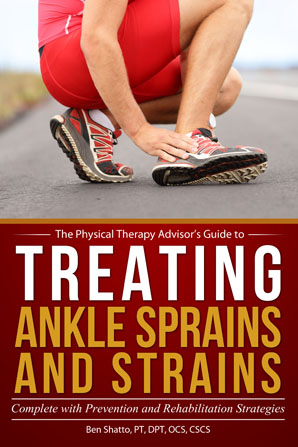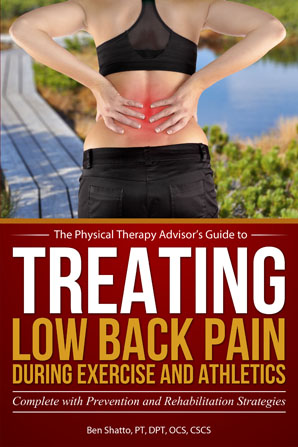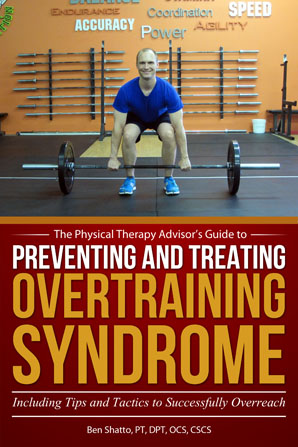As 2017 comes to a close, I become increasingly more excited for the years to come! As science evolves and its understanding of how the human body functions, we’re seeing more technology that can help to enhance our lives and optimize function. More people are realizing the value of taking control of their health care and personal well-being. In today’s health care environment, we all need to learn how to treat common aches and pains proactively instead of reactively. We must get to the root of the issue instead of placing a Band-Aid over it. Our present health care system in America is not designed to help you optimize your health–that is your job!
The purpose of The Physical Therapy Advisor is to help people like you to take control of your health and to save money by learning how to safely self-treat and manage common musculoskeletal, neurological, and mobility related conditions safely and effectively.

Image courtesy of Unsplash.
My Top 3 Most Popular Posts of 2017:
- Why You Won’t Heal – Poor Nutrition (Part 4) – You will discover why consuming the proper nutrients is critical in order to fully heal and recover from an injury or illness in part 4 of my very popular 6-part series, Why You Won’t Heal. The feedback was so positive that I written an even more thorough book on the topic! Keep an eye out for Why You Won’t Heal (and What YOU Can Do About It) to be published in spring of 2018.
- How to Become a Resilient Runner – You will learn how to become a resilient runner so you can avoid injury, train more, recover quicker, and save money. The Resilient Runner program, which includes prevention and self-treatment for running injuries, is a collaboration with Angie Spencer (RN and Certified Running Coach) and Trevor Spencer (co-host of the Marathon Training Academy Podcast). The program is a virtual library of self-treatment protocols including downloadable podcasts, videos, and .pdf files of rehabilitation guides. It also includes a 320 page eBook, The Resilient Runner, Prevention and Self-Treatment Guide to Common Running Related Injuries. This is a must have program in order to learn how to prevent and/or self-treat lower extremity pains and injuries.
- Why Does My Shoulder Hurt? – I discuss the most common reasons why you may develop shoulder pain. You will discover the key to treating most common shoulder related pain. In addition, learn how to improve your posture while focusing on thoracic mobility and proper shoulder strengthening. I offer simple stretches and exercises that you can use to eliminate the pain.
2017 has been an exciting year! I have successfully published three books (which are now available on Amazon in Kindle and paperback formats) with wonderful feedback! I am so grateful that more people are beginning to understand that many of the most common aches, pains, and musculoskeletal injuries can be safely managed and self-treated with proper guidance.

In Treating Ankle Sprains and Strains, I show you how to effectively self-treat and manage an ankle sprain and/or strain in order to resume your training and normal activities while minimizing the risk of additional damage, injury or re-injury. When you can confidently self-treat, you can limit pain levels, return to activity faster, prevent reoccurrences, and save money! A proper rehabilitation from the initial injury to the full return to sport and/or activity must include a full return to strength, mobility, and balance.

In Treating Low Back Pain during Exercise and Athletics, I share very specific strategies for general LBP prevention among athletes such as sport enthusiasts, CrossFitters, weightlifters, and runners. These principles are helpful for anyone participating in athletics as well as those implementing a healthy lifestyle. You’ll learn how to address specific causes of LBP as well as the best practices on how to prevent and self-treat when you experience an episode of LBP.

In Preventing and Treating Overtraining Syndrome, I show you how to recognize the risk factors and symptoms of Overtraining Syndrome (OTS). You’ll learn how to utilize prevention strategies to help you develop a personal training strategy that will allow you to push past your limits and prior plateau points in order to reach a state of what is known as overreaching (your body’s ability to “supercompensate”). This will speed up your results, so that you can train harder and more effectively than ever before!
Be sure to stay tuned for upcoming books including Why You Won’t Heal (and What YOU Can Do About It) and Running an Injury-Free Marathon (Complete with Training and Rehabilitation Strategies)!
Thank you for supporting The Physical Therapy Advisor! I look forward to serving you in 2018! If you have a question that you would like featured in an upcoming blog post, please comment below or submit your question to contact@thePhysicalTherapyAdvisor.com. Be sure to subscribe to my e-mail list and join our community on Facebook by liking The Physical Therapy Advisor!
